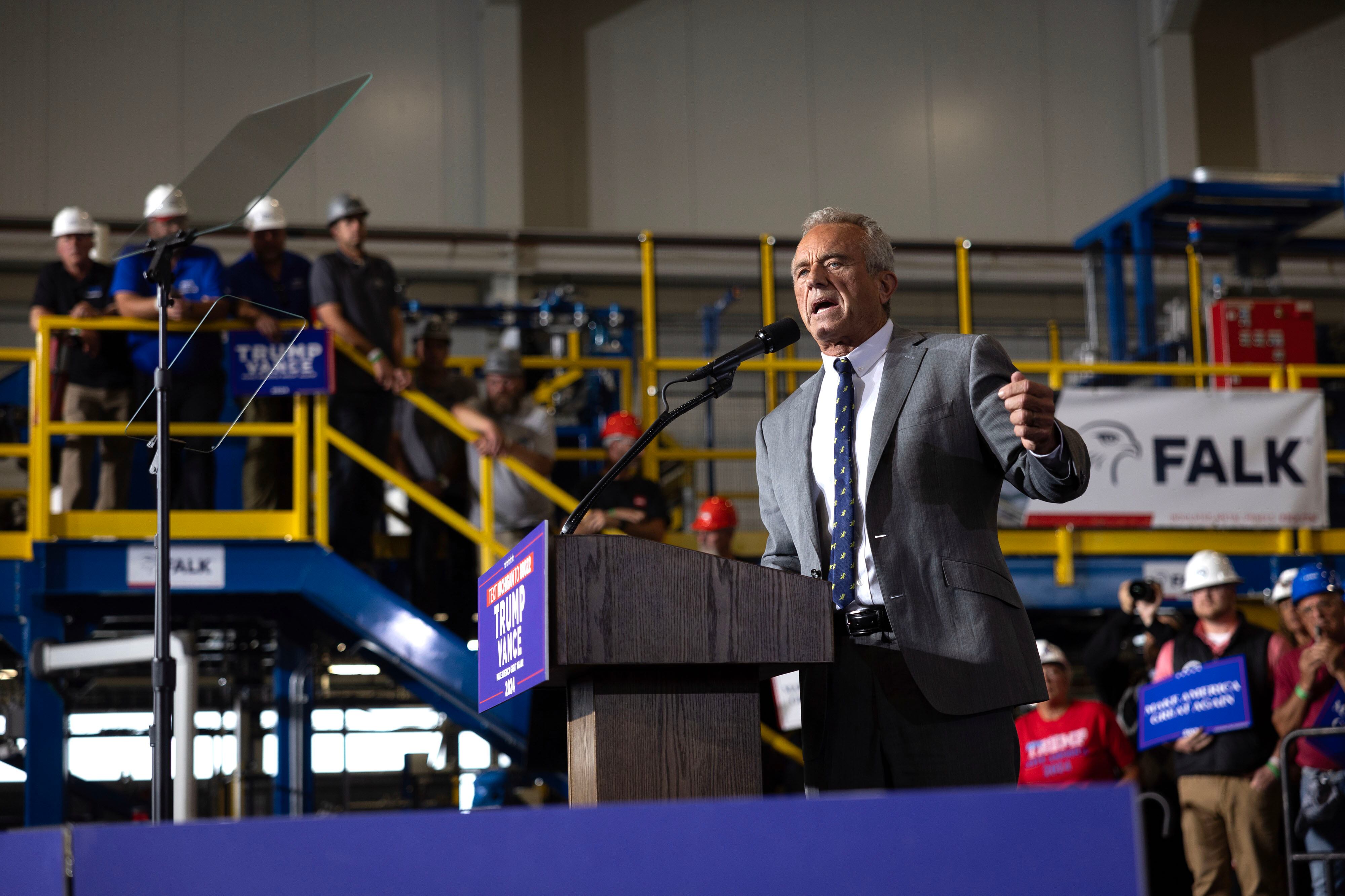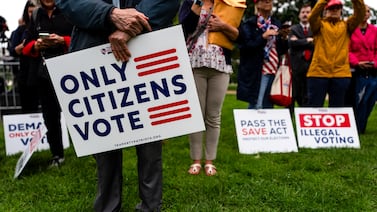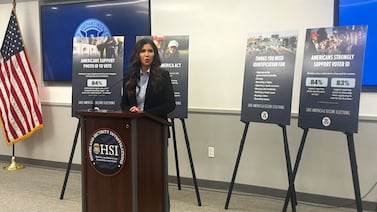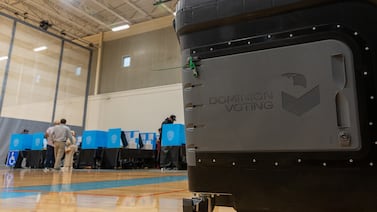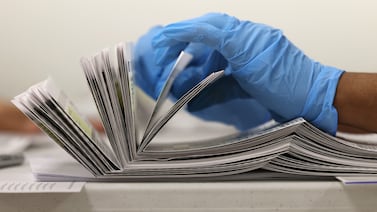Votebeat is a nonprofit news organization reporting on voting access and election administration across the U.S. Sign up for Votebeat Wisconsin’s free newsletter here.
The Wisconsin Supreme Court rejected Robert F. Kennedy Jr.’s request to have his name removed as an independent presidential candidate from the November ballot or covered with stickers, a relief for local clerks.
The court on Friday upheld a decision by the bipartisan Wisconsin Elections Commission to keep Kennedy — who dropped out on Aug. 23 and endorsed former President Donald Trump — on the ballot despite his request to drop out. The commission cited a law saying qualified nominees can only get off the ballot if they die.
“It’s good to have that done so we could focus more on the election,” Waukesha County Clerk Meg Wartman, a Republican, said about the case. She said around 40,000 ballots had already gone out in the county, and some had already been returned.
Kennedy had sought to remove his name in several battleground states to avoid splitting votes and inadvertently helping Democratic candidate Kamala Harris. His lawyers had argued that the commission’s decision amounted to a First Amendment violation by “diminishing Kennedy’s message or putting forth a message he doesn’t agree with.”
But the justices said Kennedy didn’t make a persuasive case. In a concurring opinion, two conservative justices said Kennedy’s position was weakened by urgent election and court deadlines.
Election officials told Votebeat and said in court filings that either of Kennedy’s original requests — printing new ballots without his name or covering up his name with stickers on the ballots — would be time-consuming and expensive.
Clerks additionally said that putting stickers over his name on ballots could cause tabulators to malfunction on Election Day. A prominent voting machine company, Election Systems & Software, said that it wouldn’t cover such malfunctions under its warranties, and its machines aren’t tested to work with stickered ballots.
In Dane County, reprinting nearly 500,000 ballots would have cost $150,000 and taken about two weeks, Dane County Clerk Scott McDonell, a Democrat, said in a court filing.
“There was no way we were going to be able to reprint ballots in time to mail to overseas voters,” McDonell told Votebeat. “I am grateful the Supreme Court acted in accordance with the law and the practicalities of running a presidential election.”
In Milwaukee County, where the county office put in an order to print 610,000 absentee ballots, reprinting those ballots would have cost $82,000 — an amount that wasn’t budgeted, the county’s elections director, Michelle Hawley, said in court filings.
But for all the concern among election officials, the ruling wasn’t so surprising, said Wartman, the Waukesha County clerk.
“I don’t think we thought it had a lot of merit,” Wartman said of the case, adding that multiple local candidates have tried to get off the ballot in the past, to no avail.
“Even though this was certainly a bigger name and a bigger stage, so to speak, the legal precedent to have him removed from the ballot wasn’t there,” she said.
The court decision marks a likely end to Kennedy’s fight to get off the ballot in Wisconsin, at least in state courts. A federal appeal could still follow, but those appeals haven’t succeeded elsewhere.
In Michigan, Kennedy took his case to a federal court after the Michigan Supreme Court rejected his request to get off the ballot. That federal court also rejected his request, as did a federal appeals court. In New York state, which leans Democratic — and which his father represented as a U.S. senator — Kennedy sued to get his name on the ballot, an effort the U.S. Supreme Court struck down.
The North Carolina Supreme Court, on the other hand, ordered counties to issue new ballots without Kennedy’s name after he filed a similar lawsuit.
Alexander Shur is a reporter for Votebeat based in Wisconsin. Contact Alexander at ashur@votebeat.org.

